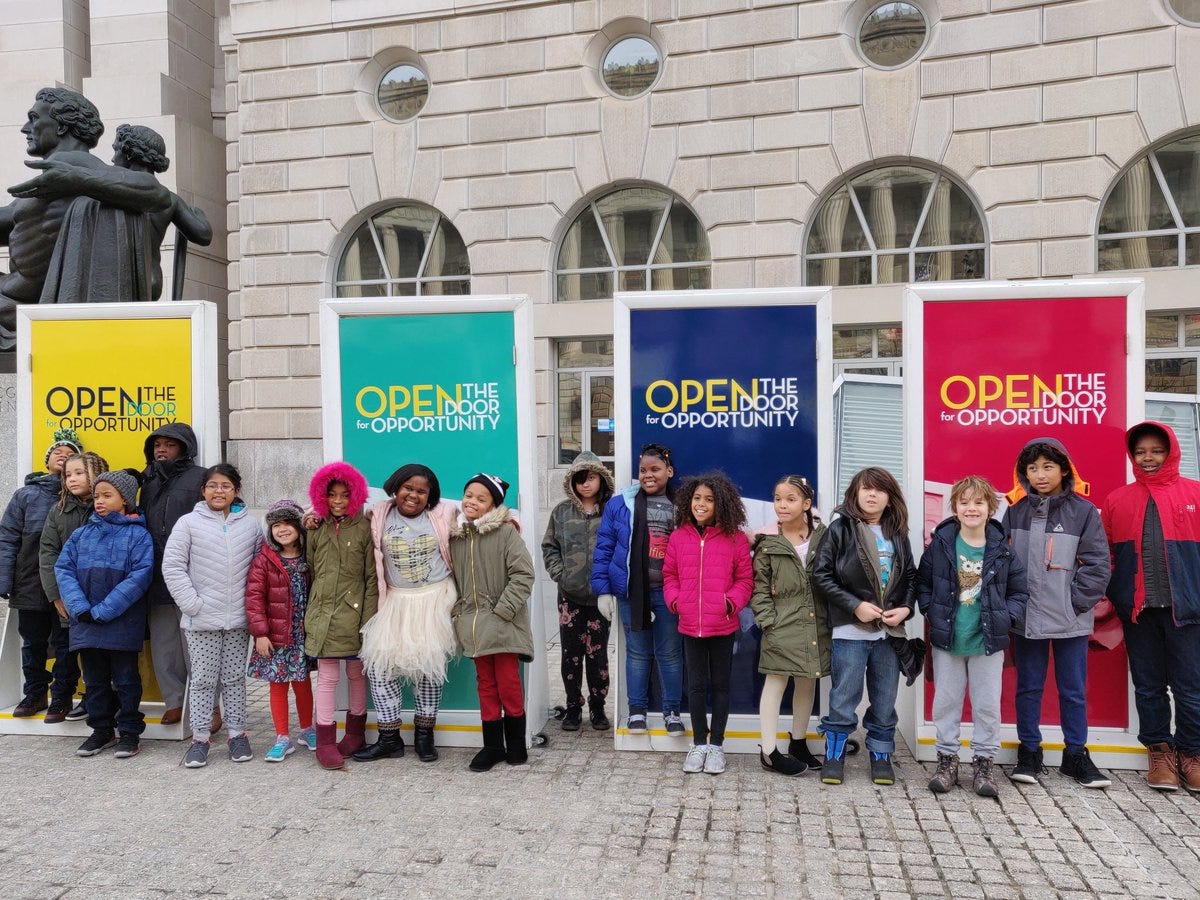Education Malfunction
Among Students and Public Officials
The spiraling decline of educational attainment in the US continued last week with the results of the latest report card on History and Civics knowledge. We don’t know much about history - that much is clear - but it’s worse than ever.
Just thirteen percent of eighth-graders “met proficiency standards for U.S. history, meaning they could explain major themes, periods, events, people, ideas and turning points in the country’s history. About a fifth of students scored at or above the proficient level in civics,” reports the Wall Street Journal’s Ben Chapman. They were the lowest scores since 1998.
The answer, says literacy and education expert Susan Pimental, is to focus on reading.
Meanwhile, the proverbial education Nero is fiddling while Rome burns. Education Secretary Cardona projected the failed results on people who are trying to ensure schools actually teach history rather than spend their time on how students feel on a particular day. And blamed them on his own pandemic era school closures.
But the decline has been years in the making, as we replaced expectations that students learn about their country with politically charged current events. It could’ve been both/and. Students can learn to think critically about today’s most thorny issue, no matter what side one is on, with history as a guide. NAEP’s latest results prove the point that neither history nor civics is being taught.
At least we can read a little better. Sort of.
We have both a history and literacy problem. The March ‘23 release of the NAEP reading and math found that only one out of three students cannot do math or read at grade level (compared to less than 1 out of 5 for history) One out of four students are not able to perform even at minimal, basic levels. According to the report’s authors, “the national average score declines in mathematics for fourth- and eighth-graders were the largest ever recorded in that subject.” We might improve our reading scores if students actually had to read, interpret and report on complex issues.
Be your own power in this. Get your students - in your homes, your schools, your community groups, to at least start watching videos like the non-partisan National Constitution Center provides.
Ed Secretary ignores Charter Schools Week
Some of the impetus behind the creation of charter schools was the demand by parents for better education and by teachers for the freedom to provide it. They wanted more education, more content, better history teaching, and that simply, their kids be instructed to learn to do the fundamentals. Others just wanted out of bureaucracy.
Charters’ intellectual champion, Ted Kolderie argued that states could drive the improvement of public education, first by opening enrollment and then by establishing choices in the form of viable, recognized, diverse alternatives. Almost overnight, the idea caught on. A Time Magazine 1994 headline proclaimed charter schools “a grassroots revolution.”
Chartering represents only one of several approaches to improve opportunities for students. It's a cause worthy of celebration. And while the president, no matter who he is, deserves our respect, it’s unconscionable that today’s has completely ignored and dismissed it, choosing instead to celebrate Teacher Appreciation Week which usually falls the week before.
In my Forbes column this week, Rejoice and Mourn: National Charter Schools Week 2023, I address the very important work happening in charters and the very real battles they must fight daily. If they didn’t have to do so, these life saving educational options would be available to millions more students.
State funding is only half the battle
Not surprisingly, the more choices that are constrained, the more other solutions rise up to provide them. Education choice bills and new laws are sweeping the country and not since we helped a dozen or so choice and charter bills glide to success in the mid 2000s have we seen so many states rushing to solve the dearth of quality choices available.
While that’s good news if you believe in equality of opportunity, you should know the battle has yet to be won. Providing choices and actually funding them so they can exist for more students is the most important thing lawmakers can do. Read this exceptional piece by SIG’s Jeff Yass. You won’t be sorry.
Pot calling the kettle black
“Instead of working constructively to develop forward-looking policies that address learning loss and better prepare our schools for future pandemics,” a spokesperson for Democrats on the Select Subcommittee told POLITICO, “Select Subcommittee Republicans are sending absurd letters in the dead of night to harass Ms. Weingarten and her staff — pressing forward with their extreme, politically motivated investigations while pushing draconian cuts to programs that protect children’s health and education.”
The Wall Street Journal did a great job laying out Ms. Weingarten’s culpable behavior and CDC influence during the pandemic “We spent every day from February on trying to get schools open. We knew that remote education was not a substitute for opening schools,” she told the House. “We know that young people learn and connect best in person, so opening schools safely—even during a pandemic—guided our actions, which I will describe in detail.”
Process that, then watch these video clips which contradict her testimony of course.
___
Thanks for reading! I’m envious of all those out there who have the time to read, write and post daily, but hopefully these weekly musings I fit in between running a multi-pronged organization and living a life resonate with you. If they do, drop me a line here, and share what you’d like to see more or less of. Until next time - Jeanne



